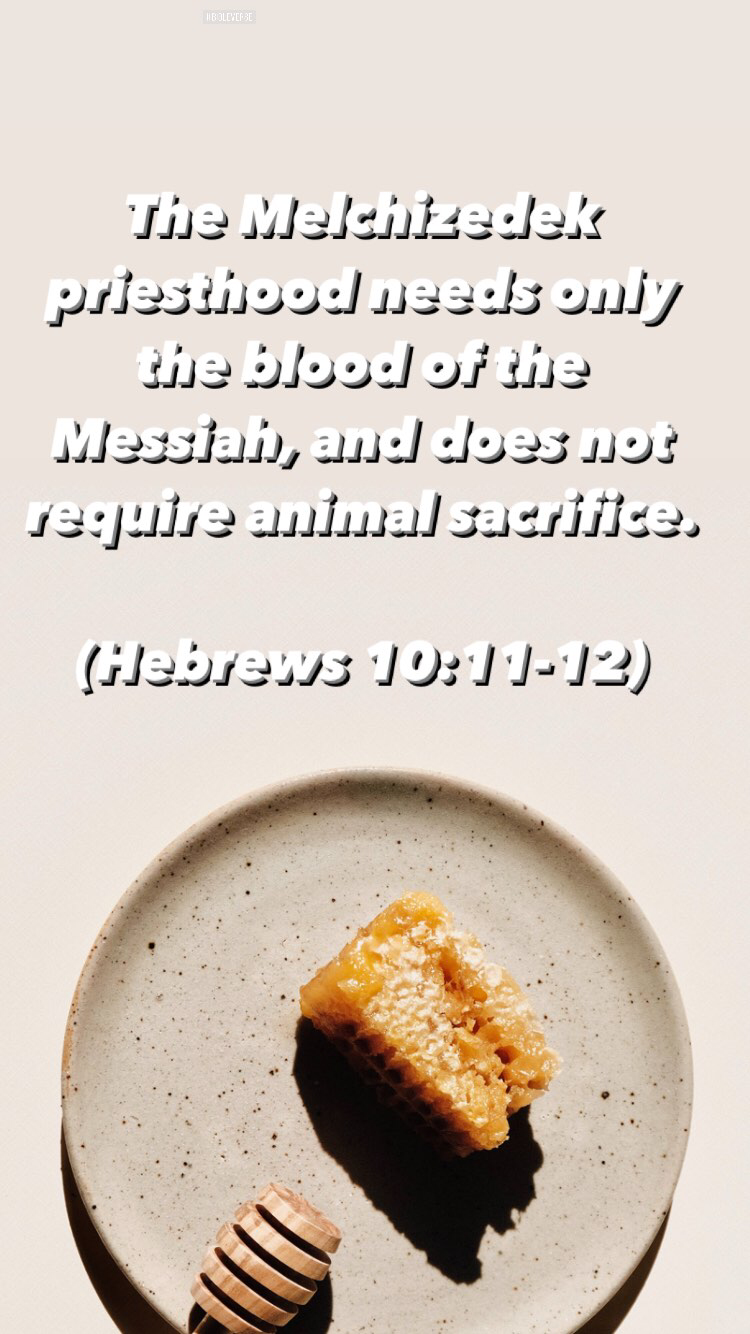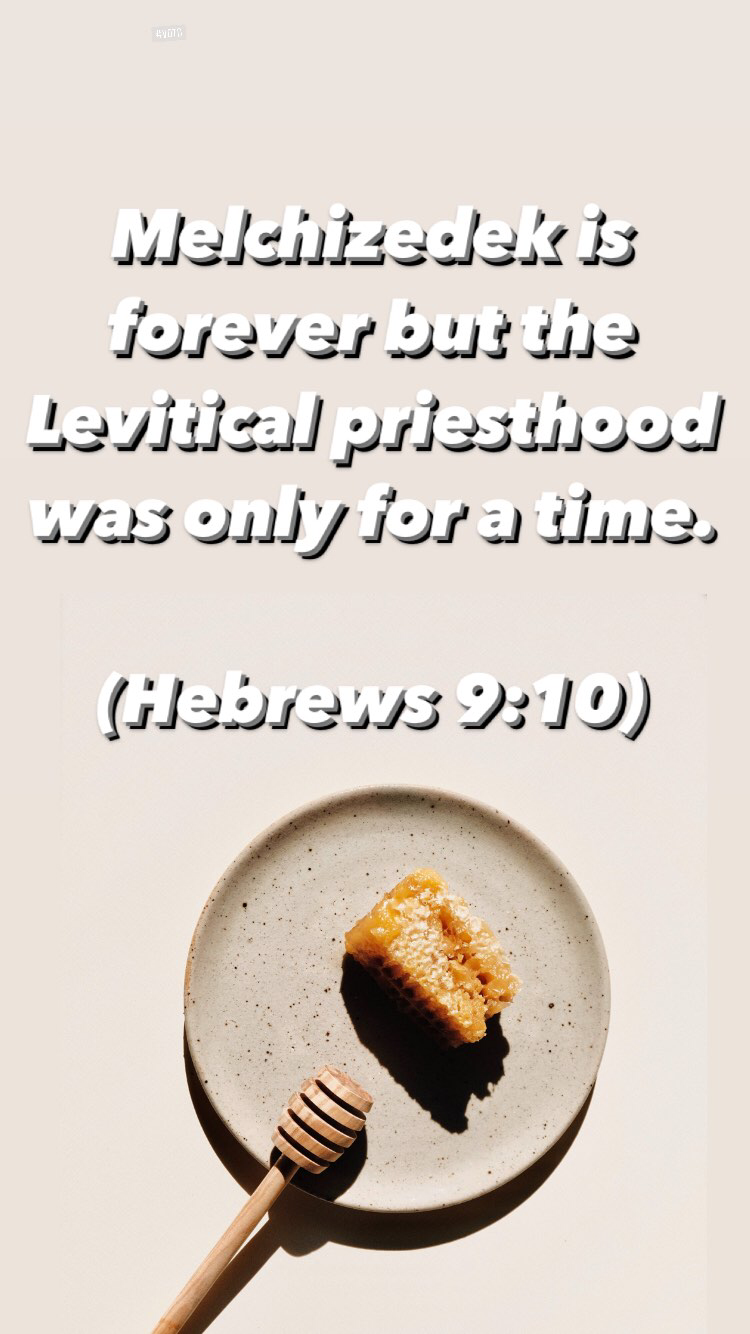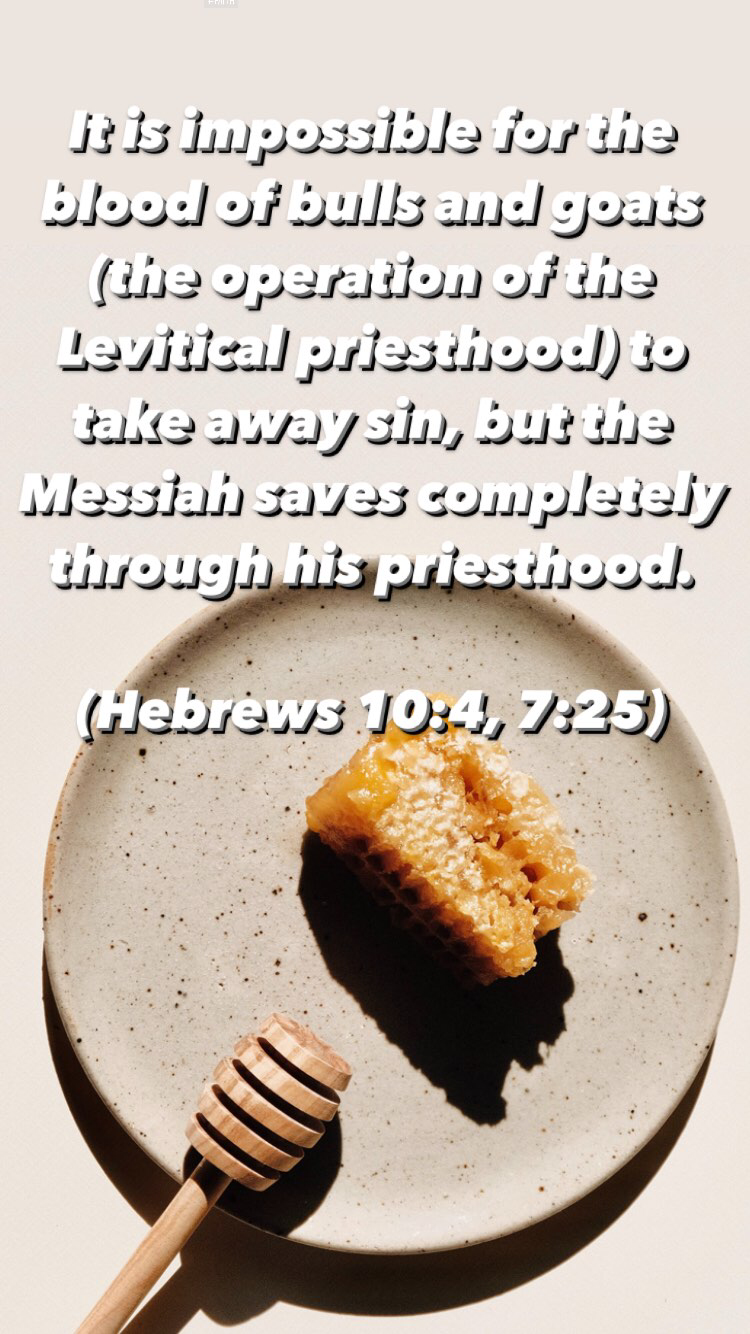Seeing that the Bible talks about two separate priesthoods was eye-opening for me. There are many differences between the Levitical priesthood, which was instituted after the sin of the golden calf, and the Melchizedek priestly order of the Messiah. Seeing these as two distinct entities will help you to better understand Scripture!
Scripture considers Melchizedek greater than Levi. (Hebrews 7:7)
The Melchizedek priesthood needs only the blood of the Messiah, and does not require animal sacrifice. (Hebrews 10:11-12)
The Messiah did not sin, and therefore did not need to atone for himself, whereas priests of Levi would first have to sacrifice sin offerings for themselves, before they could do so for the sins of the people. (Hebrews 7:27)
The Melchizedek priesthood is forever, but the Levitical priesthood was only for a time. (Hebrews 9:10)
The Levitical priesthood system is a copy and shadow of the heavenly Melchizedek priesthood. (Hebrews 8:5)
It is impossible for the blood of bulls and goats (the operation of the Levitical priesthood) to take away sin, but the Messiah saves completely through his priesthood. (Hebrews 10:4, 7:25)
Levitical sacrifices had to be offered up day by day, but the Messiah's offering of his blood under the Melchizedek priesthood was once and for all.
Related posts:
A Hebraic Perspective on Hebrews
Comparing the Melchizedek and Levitical Priesthoods
Why We Don't Sacrifice Animals















.JPG)